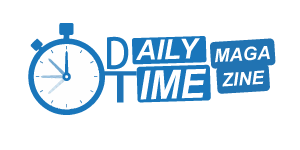Property management software offers many advantages to landlords.
It allows you to manage your business on your own, remotely, or while you have a traditional day job. This makes managing rental properties much more accessible and realistic to those new to the industry.
However, the platform you initially choose may not be the best for you long term. If you aren’t satisfied with your property management software platform, don’t be afraid to research new options and switch platforms.
Transitioning to a new platform may seem intimidating, but you don’t have to do it alone. Many platforms offer personal onboarding help to walk you through migrating your data, setting up integrations, and transitioning your tenants.
You deserve a high-quality product for the money you pay. By browsing review sites and reading about your options, you can quickly identify where your software solution is lacking and which alternatives might be better.
Here are four reasons to switch to a new property management software platform.
1. The fees are too expensive.
Your software solution might not be for you simply because it costs too much.
Even if your subscription is cheaper than the cost of hiring a property manager, it can still eat up your budget and limit what you can do with your hard-earned revenue.
If your software is too expensive, consider trying a company with a different pricing model. Pricing varies widely in the property management software industry. Unit-based pricing, monthly or annual subscriptions, feature-based pricing, tiered pricing, and freemium/free pricing are all common structures for property management software.
If your fees are adding up, try a platform with a different pricing model that better suits your needs. For instance, if you’ve recently acquired a new building with dozens of new units, you might want to avoid unit-based pricing models as you will be charged extra for each new unit you add. Instead, try a company that charges a flat monthly rate or feature-based fees.
Don’t forget—you don’t have to pay for your software if you don’t want to. Free property management software is available on platforms like Innago and Cozy (which recently merged with Apartments.com).
2. The platform has poor customer service.
Excellent customer service should be a given on any software platform. Bugs and other problems need to be solved immediately—your tenants are counting on the platform to pay their rent and communicate with you. You also rely on your software for running your entire business.
If the customer service on your current platform is below par, research replacements with a high customer service rating. You can find credible reviews on TrustPilot, G2, and Capterra. Look for platforms with glowing service reviews.
3. You’re looking for a specific integration.
Integrations define how your software platform interacts and engages with other applications. Occasionally, you may need a specific integration to manage your rentals the way you want. For instance, you may need integrations for accounting, document signing, security, insurance, or listing syndication on certain sites.
In this case, you’ll want to research the best platforms for the integration you’re looking for. Here are some of the most popular: Buildium and Goodjuju for website integration, Rent Manager and Zego for online payments, and Doorloop and HelloSign for document signing.
Many platforms offer integration with QuickBooks, a business accounting solution.
If you’re savvy with code and are looking to customize your own integration, look for a platform with an open API, such as Buildium. Buildium even offers access to a developer portal to walk you through API keys and requests.
4. The software is old and rarely updated.
You should be able to trust your software provider to protect sensitive data.
Property management software platforms store and protect all kinds of data, including banking information, demographic data, and identification.
For this reason, it’s best to switch platforms if you find that your current one isn’t doing enough to protect your data. An older software tool becomes a liability if it isn’t regularly updated. Without developers actively adapting to new cybersecurity concerns, older software could be vulnerable to hackers.
If your current platform doesn’t offer updates and improvements to its security infrastructure over time (or if other users have experienced liabilities in the past), it might be time to switch.
Choosing Software For Your Rental Business
Choosing property management software is an important decision. Not only do you use it to manage every aspect of your business, but your tenants also rely on it. Digital management tools are critical to the real estate industry, and you should be able to trust the one you use. If you are unsatisfied with your current choice, a little research can help you identify an excellent platform for your needs.





































